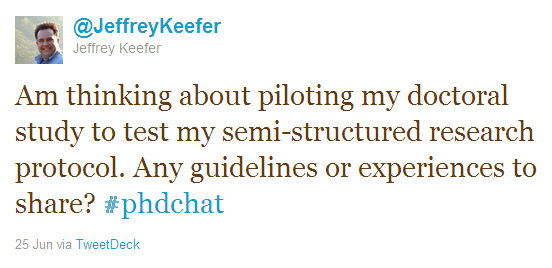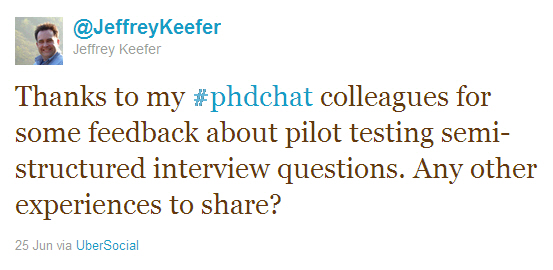 I want to share my progress with my doctoral thesis data collection that I started in my posting on July 28 where I outlined my research and began to request participants.
I want to share my progress with my doctoral thesis data collection that I started in my posting on July 28 where I outlined my research and began to request participants.
I have been absolutely blown away by the support and interest I have felt from so many people who have so kindly offered to assist or otherwise help promote participation in my work. Having already completed 7 interviews lasting between 60 and 90 minutes each, I feel I am indeed learning more about the liminal experiences that occur during doctoral studies related to learning leaps, aha! moments, and passing through conceptual thresholds.
I have learned that I really do not know what sorts of initial findings I can draw from this work until I begin transcribing and analyzing the transcripts, but I have already noticed that some of my questions and frames have developed the more I learn about how current and former doctoral researchers experience and make sense of their in-between periods of meaning-making while on the path to their degrees. Each person I speak with is so different from one another, and this opportunity to hear about what at times involves personal experiences en route to the degree often leaves me in awe.
I so value how generous many people are with their time, and I look forward to engaging with the other participants I have scheduled to interview through the end of the month (when I now hope to conclude my data collection for my research).



